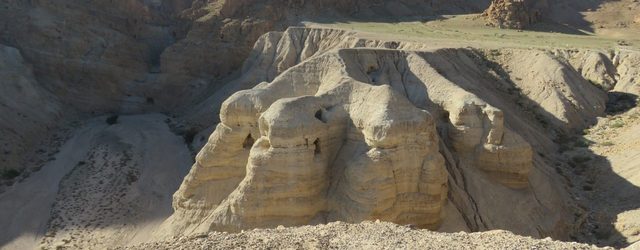使徒の働き6章 教会の実際的課題
1.配給の問題の解決(6:1-6)
初代教会の活動の中で最初に起こった問題は「偽善」でした。次に起こったのは、1節「差別」の問題です。なんとも、教会も世の中も変わらない、と思って失望される方もおられるかもしれません。しかし、教会が世の中と違うのは、教会は、そのような時に、神の御心に従ってよりよい関係を築くところにあります。教会の嫌な側面を見ると、距離を取ったり、批判して去ったりすることはよくあるものです。私が牧会している教会でもそのような残念な思いにさせられることがありました。しかし聖書に教えられることは、そのような時にこそ、皆で祈り、イエスの愛の教えに従って、関係を深め教会を完成させていく気持ちを持つことなのです。
そこで彼らがどのようにこの問題を乗り越えたのかを見てまいりましょう。まず起こっていた問題は、他国から帰化しギリシア語を話すユダヤ人(ヘレニスト)と、地元のパレスチナで育ちアラム語を話すユダヤ人(ヘブル人)が衝突していたことでした。日々の配給に不公平な対応があったというのです。しかし、2節、問題はより複雑でした。忙しく気配りを欠いて、不公平に振舞ってしまっていた十二使徒たちの問題もあったのです。
教会の働きが多様化し、大きくなればなるほど、一層大事にしなくてはならないのは、霊的な関わりと養いです。そのことのために献身している牧師たちの時間を確保してあげること、そして実務的なことは、それを上手にこなせる働き人を選び出し、任せていく、それによって教会もパフォーマンスを最適化していくことになります。
こうして初代教会は衝突を残念な結果に終わらせず、それを機に、教会の本来的な機能を強化し、さらに働きの効率をあげ前進していったと言えるでしょう。教会を完成させようとする知恵と一致のある教会に優るものはありません。
2.ステパノ登場(6:7-15)
8節からは、先に選ばれた執事の一人、ステパノにスポットライトが当てられます。ステパノは、初め評判のよい執事として選ばれたのですが、さらに宣教者としてもよく用いられていたことがわかります。ルカは、ステパノを「恵みと力に満ちた」人であると紹介しています。まさに彼はイエスの弟子というべき存在であり、聖霊も彼と共によく働いたのです。
ところが、聖霊が共にあるということは、何でもことがうまく進むということでもありません。ステパノに対する敵対的な行動も生じたのです。それは、ユダヤ人の会堂から起こりました。9節の「リベルテン」ということばは、「自由にされた者」を意味します。つまり、BC63年にローマ皇帝のポンペイウスによって捕虜とされ、ローマに強制移住させられたものの、後に解放されたユダヤ人のことを言います。解放後彼らはエルサレムに自分たちの会堂を建て、リベルテンと呼びました。後に出てくる使徒パウロも彼らと何等かの関りがあったようです。実際パウロはタルソ、つまりキリキア地方の出身で、ここでステパノと議論したクレネ人、アレキサンドリア人、キリキアやアジアから来た人々の一人だったと考えられています。ともあれ、彼らはステパノに敵対し、議論をふっかけてきました。そして議論で勝てないと知った彼らは、力づくでステパノを排除しようとしました。
神の言葉を味わい、生きる素晴らしさがある一方で、神の言葉を語る難しさに直面することがあります。というのも、福音は15節「モーセが私たちに伝えた慣習を変える」とあるように、私たちの実際生活を変えていくものだからです。ある人々にとって、それは脅威となるものでしょう。しかし福音がもたらす恵みの大きさを思えば、これまでの人生を捨てることなど全く惜しいものではありません。目には見えませんが、まことに生きた神は祝福の神であり、神を受け入れる者に良くしてくださることに間違いはないからです。
Acts 6: Practical Issues for the Church
1. Solving the Problem of Rationing (6:1-6)
The first problem that arose in the activities of the early church was "hypocrisy. The next problem that arose was the problem of "discrimination" in verse 1. Some may be disappointed and think that the church is no different from the world. However, what makes the church different from the world is that the church follows God's will and builds better relationships in such situations. It is common for people to distance themselves or criticize and leave when they see aspects of the church that they don't like. I have had such disappointments in the churches I have pastored. But what the Bible teaches us is that it is in these times that we should all pray together and follow Jesus' teaching of love and desire to deepen relationships and perfect the church.
So let us see how they overcame this problem. The first problem was the clash between the naturalized Greek-speaking Jews (Hellenists) and the Aramaic-speaking Jews (Hebrews) who had grown up in Palestine. They said there was an unfair response to the daily rations. But, verse 2, the issue was more complicated. There was also the problem of the Twelve Apostles who were too busy and attentive to act unfairly.
As the work of the Church becomes more diverse and larger, spiritual involvement and care must be valued even more. The more the church grows, the more important it becomes to give time to pastors who are dedicated to this, and to select and entrust the practical matters to workers who can do them well, so that the church can optimize its performance.
In this way, the early church did not let the conflict end in disappointment, but used it as an opportunity to strengthen the essential functions of the church and further improve the efficiency of its work and move forward. There is nothing better than a church with wisdom and unity that seeks to perfect the church.
2. The Appearance of Stephen
2. The Appearance of Stephen (6:7-15)
Beginning in verse 8, the focus shifts to Stephen, one of the previously chosen stewards. Stephen was initially chosen as a respected steward, but he was also often used as a missionary. Luke introduces Stephen as a man "full of grace and power. He was truly a disciple of Jesus, and the Holy Spirit worked well with him.
However, the presence of the Holy Spirit does not mean that everything goes well. There were also hostile actions against Stephen. The word "bondman" in verse 9 means "set free. It refers to the Jews who were captured by the Roman emperor Pompeius in 63 B.C. and forced to emigrate to Rome, but who were later freed. After their liberation, they built their own synagogue in Jerusalem and called it Liberated. The Apostle Paul, who appears later in the book, seems to have had something to do with them. In fact, Paul was from Tarsus, or Cilicia, and is thought to have been one of the Crenæ, Alexandrians, and people from Cilicia and Asia who argued with Stephen here. In any case, they opposed Stephano and challenged him to an argument. When they realized that they could not win the argument, they tried to eliminate Stephen by force.
While it is wonderful to taste and live the Word of God, we are sometimes faced with the difficulty of speaking the Word of God. This is because the gospel changes our actual lives, as verse 15 says, "It changes the customs that Moses handed down to us. For some, this may be a threat. But the magnitude of the grace the Gospel brings makes it worth the sacrifice of a life well lived. For though invisible to the eye, the true and living God is a God of blessings, and He is good to those who accept Him.
















